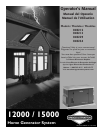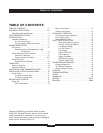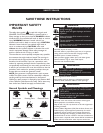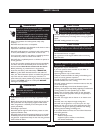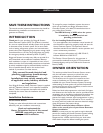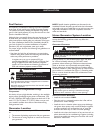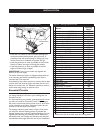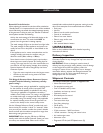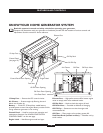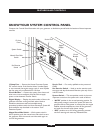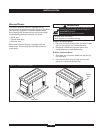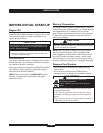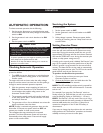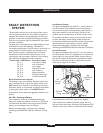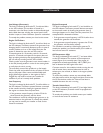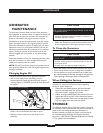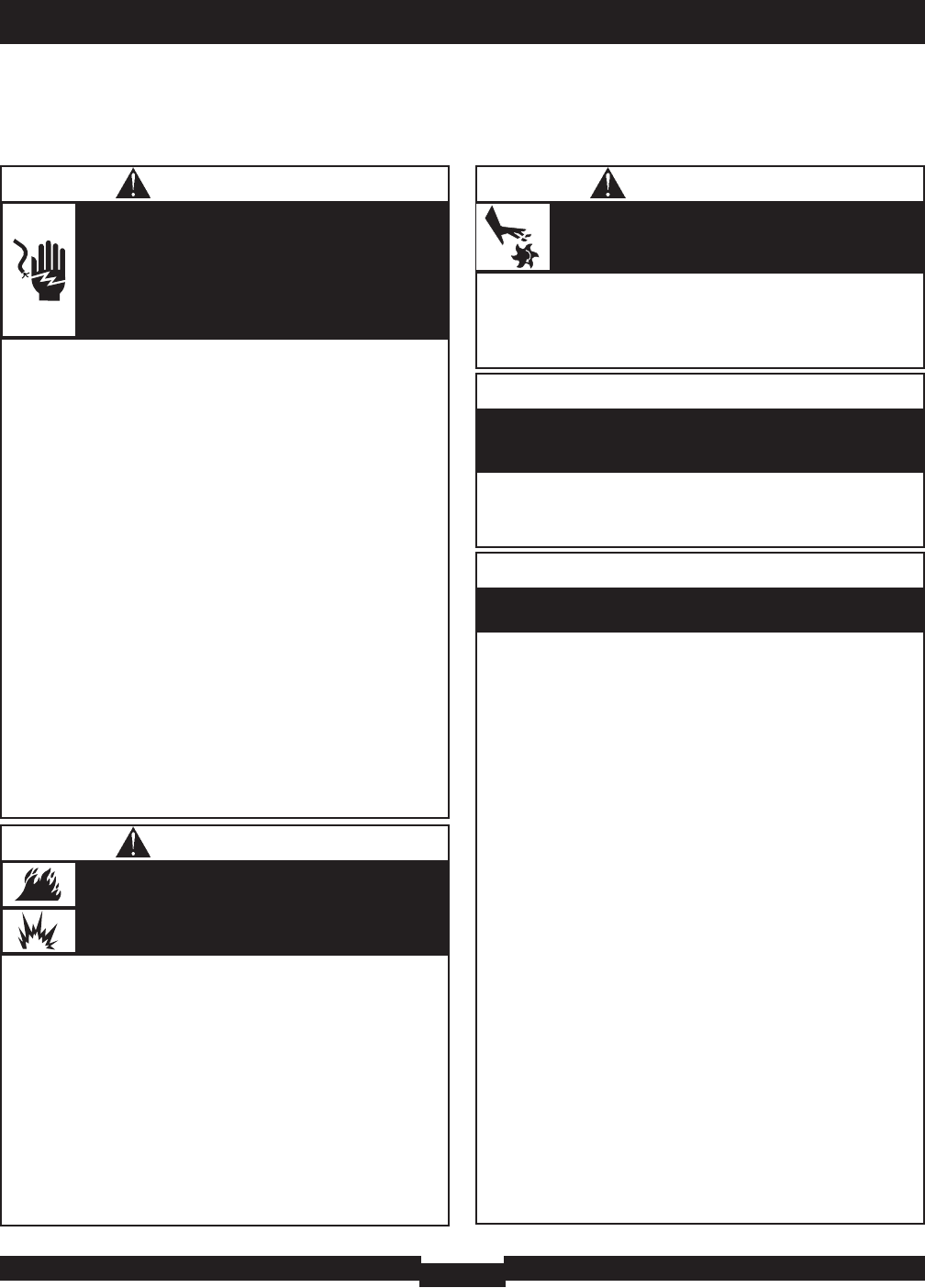
SAFETY RULES
4
• DO NOT tamper with governed speed. Generator supplies
correct rated frequency and voltage when running at governed
speed.
• DO NOT modify generator in any way.
Excessively high operating speeds increase risk
of injury and damage to generator.
Excessively low speeds impose a heavy load.
CAUTION
• See “Essential Circuits” on page 7.
• Start generator and let engine stabilize before connecting
electrical loads.
Exceeding generators wattage/amperage capacity can
damage generator and/or electrical devices connected
to it.
CAUTION
• Use generator only for intended uses.
• If you have questions about intended use, ask dealer or
contact Briggs and Stratton.
• Operate generator only on level surfaces.
• Adequate, unobstructed flow of cooling and ventilating air is
critical to correct generator operation.
• The Oil Fiil, Oil Drain and the Control Panel doors must be
installed whenever the unit is running.
• DO NOT expose generator to excessive moisture, dust, dirt,
or corrosive vapors.
• Despite the safe design of the Home Generator System,
operating this equipment imprudently, neglecting its maintenance
or being careless can cause possible injury or death.
• Remain alert at all times while working on this equipment.
NEVER work on the equipment when you are physically or
mentally fatigued.
• DO NOT start engine with air cleaner or air cleaner cover
removed.
• DO NOT insert any objects through cooling slots.
• DO NOT use the generator or any of its parts as a step.
Stepping on the unit can cause stress and break parts.This
may result in dangerous operating conditions from leaking
exhaust gases, fuel leakage, oil leakage, etc..
• If connected devices overheat, turn them off and disconnect
them from generator.
• Shut off generator if:
-electrical output is lost;
-equipment sparks, smokes,or emits flames;
-unit vibrates excessively.
Improper treatment of generator can damage it and
shorten its life.
CAUTION
• When using generator for backup power, notify utility
company.
• DO NOT touch bare wires or receptacles.
• DO NOT use generator with electrical cords which are worn,
frayed, bare or otherwise damaged.
• DO NOT handle generator or electrical cords while standing
in water, while barefoot,or while hands or feet are wet.
• If you must work around a unit while it is operating, stand on
an insulated dry surface to reduce shock hazard.
• DO NOT allow unqualified persons or children to operate or
service generator.
• In case of an accident caused by electrical shock, immediately
shut down the source of electrical power and contact the
local authorities. Avoid direct contact with the victim.
• Before performing any maintenance on the generator,
disconnect the battery cable indicated by a NEGATIVE,
NEG or (-) first.When finished, reconnect that cable last.
• After your Home Generator System is installed,the generator
may crank and start without warning any time there is a
power failure.To prevent possible injury, always set the system
switch to OFF AND remove the 15 Amp fuse BEFORE
working on the equipment.
Generator produces powerful voltage.
Failure to properly ground generator can result
in electrocution.
Failure to isolate generator from power utility
can result in death or injury to electric utility
workers due to backfeed of electrical energy.
WARNING
• Install the fuel supply system according to applicable fuel-gas
codes.
• Before placing the Home Generator System into service, the
fuel system lines must be properly purged and leak tested.
• After the generator is installed, you should inspect the fuel
system periodically.
• NO leakage is permitted.
• DO NOT operate engine if smell of fuel is present or other
explosive conditions exist.
• DO NOT smoke around the generator.Wipe up any oil spills
immediately. Ensure that no combustible materials are left in
the generator compartment. Keep the area near the generator
clean and free of debris.
Propane and Natural Gas are extremely
flammable and explosive.
Fire or explosion can cause severe burns or
death.
WARNING



